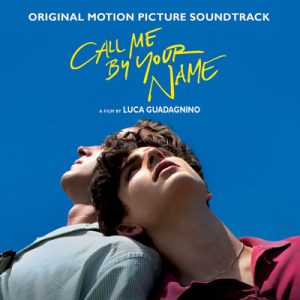
BY MERT ENEY (LAW/IV)
mert.eney@ug.bilkent.edu.tr
I’ve been watching a lot of films lately – I don’t know whether that’s because it’s the awards season, or because I’ve returned to my obsessive cycle for the medium, or simply because 2017 was one of the best years in recent memory for film – but I have, and it’s made me think about all the moments in films where just the right song starts to play and it feels like a certain type of magic. When the moving image is accompanied by the right music, it is always at an altar – this inter-medium marriage is like no other, as it can give birth through the audience to an unspeakable range of emotions. This Sunday, the 90th Academy Awards will commence once again to confer awards upon those films that are not quite as great as their fellow nominees – but I sure hope the Academy gets it right this time for Best Original Song.

I’m a sucker for a good soundtrack, and have been ever since the “Twilight” franchise released some of the best original songs written for film during my adolescence – from Bon Iver to Thom Yorke, it pioneered the sonic quality young adults craved in film – although the films themselves were not as good as the music accompanying them. The right song can elevate a scene to operatic heights, can play the audience’s emotive response like a violin, and can, in very rare circumstances, write a form of oral history for the movie. There are obvious examples of songs that are inseparable from their respective films, such as “What a Feeling” from “Flashdance” (which won the Oscar in 1984) and “My Heart Will Go On” from “Titanic” (which won the Oscar in 1997 and dominated the 1999 Grammy awards), but there are also others that are personal favorites of mine – Fiona Apple’s cover of “Across the Universe” for “Pleasantville” and Beck’s cover of “Everybody’s Gotta Learn Sometime” for “Eternal Sunshine of the Spotless Mind.”
This year, the nominees for the Best Original Song category of the Academy Awards are: Mary J. Blige with “Mighty River” (“Mudbound”), Sufjan Stevens with “Mystery of Love” (“Call Me by Your Name”), Miguel feat. Natalia Lafourcade with “Remember Me” (“Coco”), Andra Day with “Stand Up For Something” (“Marshall”) and Keala Settle with “This Is Me” (“The Greatest Showman”). Although all the nominees have produced songs that speak volumes about their films and created complementary sonic landscapes inside the confines of their visual universe, none has captured raw emotion like Sufjan Stevens.
With “Mystery of Love,” Sufjan Stevens has been able to encapsulate the quicksand nature of love, in all its chameleon glory – from obsessive longing to timid first kisses to the feeling of absolute homecoming and the never-fading ache of a love lost. No other piece of music in recent memory has so well understood the absolute sensual fabric of love and translated it into notes of sheer indulgence. The song is a great accompaniment to a great film about a first love, devoid of any form of antagonism (political, social or otherwise) other than that of the pure mortal coil of our world. The song coins the miniscule molecule of all love stories, lived in public or behind closed doors, bearing testament to that divine feeling from its origination to its doomed end. It’s a song written for all lovers, from Elio and Oliver to Hephaestion and Alexander the Great, and it’s a modern masterpiece.
